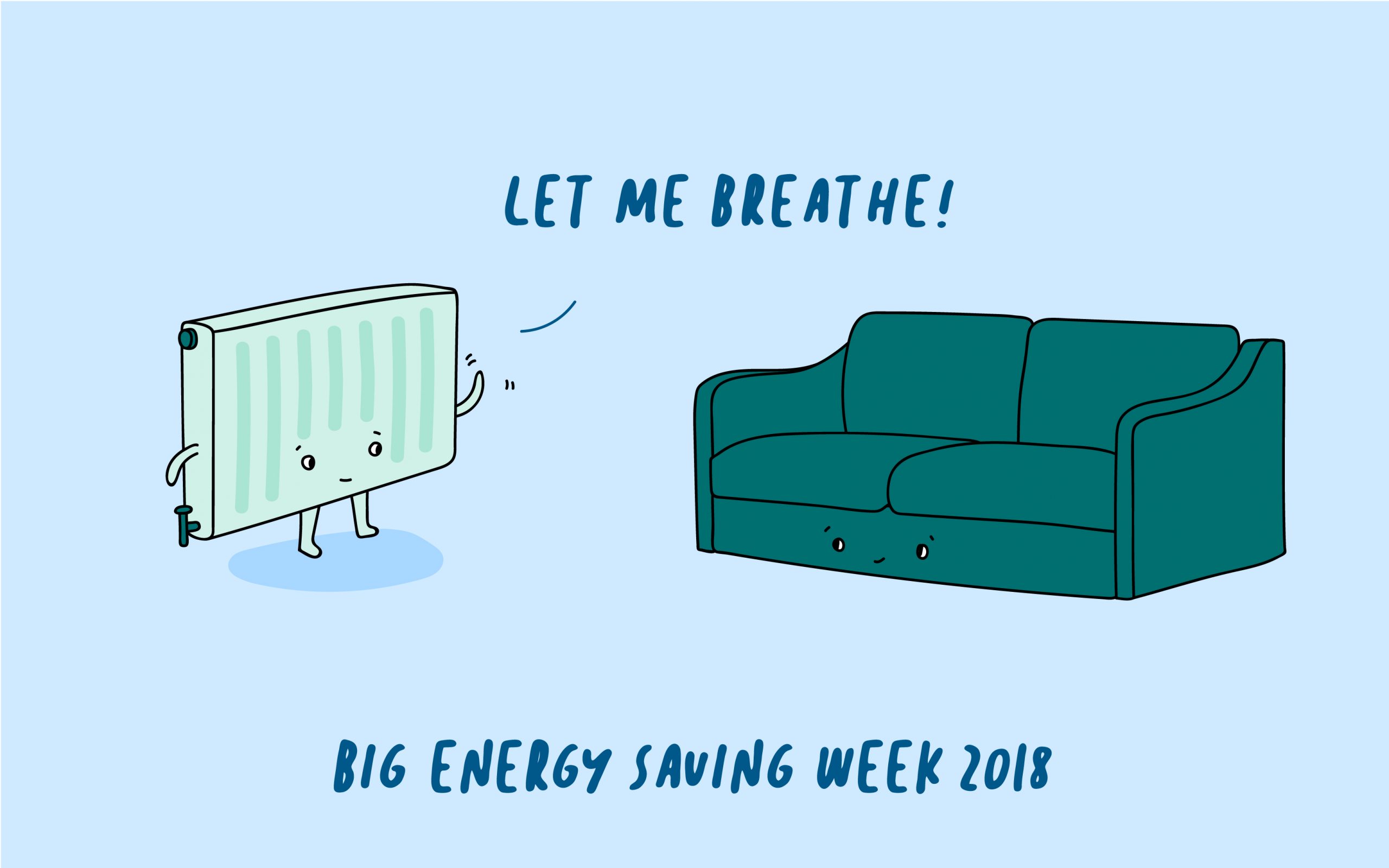To kick off Big Energy Saving Week, here’s some pretty shocking news: if you haven’t switched energy supplier in six years, you could be £1,500 better off.
That’s 27 average weekly shopping trips that could have been paid for, according to our calculations.
It’s not a small number of UK households that have made this faux pas, oh no – Ofgem figures show that nearly nine million haven’t switched in the last six years; more than a third of all households.

A switch in mindset needed
It seems that people are still labouring under misconceptions about energy switching. A key one of which is that energy deals are ‘all the same’, a belief held by a third of the people questioned in our YouGov poll.
But this is just not the case – as Energy Saving Trust Chief Executive Philip Sellwood explains.
He said: “The difference between the average Standard Variable Tariff and the cheapest deal on the market is significant, but millions of households still aren’t accessing these savings. To put that into context, switching this year could save you up to £300 – equivalent to more than a month’s worth of food shopping.
“With January being a tight month for household budgets, now is the time to look at switching your energy tariff to make sure you’re on the best possible deal.”
We’re super savers – except on energy bills
The shopping analogy is a useful one, by way of comparison to our search for good value in other purchasing decisions.
The survey showed that while 41% of us will visit multiple supermarkets to ensure we get the best deal on our weekly shop, we are not being as savvy with our energy suppliers, despite the fact that the average annual dual fuel bill is £1,123.
In short; millions of households seem to be sticking with their more expensive Standard Variable Tariff (SVT), despite better offers out there.
Peace of mind? You got it
It’s also worth mentioning the Energy Switch Guarantee at this point.
This is a key piece of consumer protection, ensuring that everything is handled by the provider you are switching to, that there is no interruption in service and that the whole process will be completed within 21 days, including a 14 day cooling-off period. It’s also not something you can only do online, despite what 20% of those we polled thought. The plus points of a switch just keep on stacking up.
Still not convinced? Why not give Citizens Advice’s Price Comparison Tool a go, and see how much you could save.
Doing your research pays
Even when switching is on the agenda, people aren’t doing their research.
A full 65% of people will read reviews when planning to spend £1,000, except in one key instance: when the cash is going on gas and electricity. Of those who had switched before, just 16% told us that they’d looked at reviews of their new tariff or supplier.
Get the advice you need – and start saving
With our Big Energy Saving Week partners Citizens Advice and the Department for Business, Energy and Industrial Strategy, we’re getting the money-saving message out there this week – offering face-to-face advice around the country.
Business and Energy Secretary, Greg Clark, explains that it’s all about getting to grips with household expenditure. He said: “We’re helping people take control of their fuel bills to reduce how much they pay for their gas and electricity.
“Big Energy Saving Week highlights how much money people can save simply by changing their energy supplier and taking action such as installing a smart meter.”
Switching is of course just one way to cut your energy bills – but it’s a pretty good place to start.
For free advice on switching energy supplier, or to find out more about Big Energy Saving Week events happening near you, call Citizens Advice on 03454 04 05 06 or visit the website.
There are additional means-tested grants and support available to make homes warmer and more affordable to run. For further information in England and Wales, contact the Energy Saving Advice Service on 0300 123 1234. Scottish households can contact Home Energy Scotland on 0808 808 2282.
Further reading
Big Energy Saving Week: simple advice to bring big results
It’s Big Energy Saving Week, so it’s probably no surprise to see us showcasing some easy ways to save money and make…
Quick tips to save energy
Follow our 10 quick tips for straightforward ways to save energy, lower your bills and reduce your carbon footprint.
BlogEnergy saving tips for when you’re stuck at home
We’ve put together some energy saving tips to help people reduce energy use at home, save money and help reduce carbon emissions…